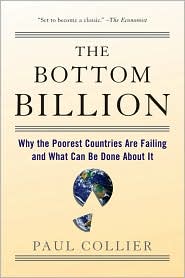In the last Discipleship 101 post, The Kingdom Solves the Human Problem - Intro, I introduced the revolutionary concept that the kingdom of heaven is at hand. The human problem is met with the immediate availability of the Kingdom of heaven. The motto of Christianity that “Jesus is the Christ” means precisely that a new heavenly quality of life, which was previously unavailable to human beings, is now “at hand”. The kingdom is available. This is a revolutionary claim, and, to understand the true revolutionary content of this promise, this gospel, we must see with the human problem with God’s eyes. From God’s perspective, what is wrong with human life?
To understand God’s perspective on humanity, to see with God’s eyes, we must must accept one preeminent truth: God is a God of compassion. The living God is the defender of the weak. The second truth we must accept is like the first. This God of compassion has a global perspective. The living God sees the oppression and suffering of the world’s poor, and He hears their cry. To understand the kingdom of heaven and its promise, we must see with the eyes of God and feel with the love of God or we will miss the proper application of the kingdom of God. How can we live in the solution if we do not understand the problem? Only if we know the compassion of God will our perspective look at a world of incomprehensible suffering and define the human problem as God defines the human problem.
The human problem is suffering. This suffering is the result of man’s inhumanity to man and this violence and oppression is the result of man’s sinfulness. Looking deeper, we find that this violence and oppression is the result of man’s alienation from God. But before we dig into solutions, solutions that include a deeper relationship with God through Jesus Christ, we must look at the problem and, indeed, the problem is oppression and suffering.
A Word on Problems and Solutions
When I speak of the term “problem”, I am using this word in an almost technical sense. By "problem", I mean the observable concrete circumstance that people find themselves in. By problem, I specifically do not mean the causes or the root causes of these objective problems. For example, war and violence is part of the human problem. I make this distinction between problems and causes because unless our theology solves these ultimate outcomes and observable problems, our theology is worthless and irrelevant. If our "solution" does not solve the "problem" how can we call our solution an actual solution. Our so-called solutions are mere theory.
Human existence has very concrete problems which prophets and philosophers have attempted to solve for centuries. The Christian faith is that the solution to the human problem is Jesus Christ. The promise of the bible is that God will bring salvation to solve the human problem that is ever before the eyes of all reflective human beings. We are all aware that humanity has a problem. We are cruel and heartless to one another. If the 20th century taught us anything, it is that something is profoundly wrong with humanity. To say that Jesus is the Christ is to say that Jesus has the solution to these self-evident problems.
A Quick Look at the Root Cause of the Human Problem
In the paragraphs ahead, I will look at the details of the human problem by looking at the first chapters of genesis, but for now I would like to simply outline where we are going.
I have already stated that the human problem is suffering. I have given violence as an example. While describing the human setting, the setting of fallenness, Genesis presents the story of Cain and Able. In the prototypical human family, one brother killed another brother. Genesis is showing us that violence is an ugly problem that is endemic to the human character. Violence is part of our fallen DNA. This is a problem the Christ and His kingdom solves.
From the Problem to the Root Cause
One way to look at a problem is to start with a problem definition and then ask ourselves “why”. We repeat the “why” question until we are satisfied that we have arrived at the root cause of the problem. Genesis both describes the human problem and answers the “why?”s for us.
Problem: Broadly speaking the problem is suffering.
Why: Why is there suffering?
Cause: Suffering exists because people are fighting in order to “survive”.
Why: Why do people fight?
Cause: People fight because they fear the future.
Why: Why do people fear?
Cause: People fear because in a world of scarcity and doubt, we lack a great enough peace to overcome our fear.
Why: Why do people lack a peace about the future that is greater than our fear?
Cause: The answer to this fear problem has to be intimacy with God.
Why: Why do people lack intimacy with God
Root Cause: The answer to this problem is Discipleship...
The road to an enduring conscious contact with God that is powerful enough to produce fearlessness and to grant to the believer the courage to cease fighting for one’s self interest is discipleship. Jesus teaches us how to live in this quality of life that the world needs and needs to see in the church. This courage is available because the Kingdom is available. This intimacy with God leads to courage. This courage leads to generosity and self sacrifice, and this generosity and self-sacrifice meets the problem of suffering.
peace




